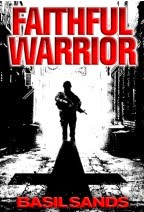A few ideas of opening lines pop out, you write them down, read them over, then erase them. You just can't seem to get this thing moving. Well, here are a few hints, tips and tricks I've learned after pounding away at four novels, a novella, and over a dozen short stories.
1. Hook your reader
with the first lines.
That's right, get them started right away into the action of
your story. Pull them in from the very start and don't let them go. Here are a
few pretty good first lines:
It was a bright cold day in April, and the clocks were
striking thirteen. —George Orwell, 1984 (1949)
It was a wrong number that started it, the telephone ringing
three times in the dead of night, and the voice on the other end asking for
someone he was not. —Paul Auster, City of Glass (1985)
Every summer Lin Kong returned to Goose Village to divorce
his wife, Shuyu. —Ha Jin, Waiting (1999)
The moment one learns
English, complications set in. —Felipe Alfau, Chromos (1990)
There was a boy called Eustace Clarence Scrubb, and he
almost deserved it. —C. S. Lewis, The Voyage of the Dawn Treader (1952)
Do you see what those first lines do? They grab your
attention and make you think, "What?" And once you've thought that,
you have to read on to find out just what the author is talking about.
2. Starting with that
first line be active from the very beginning.
Don't start your book with descriptions or explanations to
set the scene. Instead, write as if the reader has just stepped into the scene
and carry on as if they can see it for themselves. This may, to a new writer,
sound like hogwash.
"But don't I have to explain what is going on first so
the reader knows where they're at?"
No, you don't because you are going to show them where
they're at by the way the scene plays out.
Basically the idea here is that they
just turned a corner and BAM! they
walked into your scene. Their imaginations can fill in a surprisingly large
amount of information.
In my own novels I have started with a spaceship crashing
to the earth (Karl's
Last Flight), a terrorist slicing a betrayer's throat (65
Below), a POW being dragged from a prison cell (Faithful
Warrior), and a CIA hit man witnessing his wife killed before his eyes (Midnight
Sun). These are grabbers that make the reader go "Whoa what?" And
then they want to know what happens next.
3. Introduce your
main characters or set up that introduction early on.
You don't have to introduce the main good guy necessarily.
You could introduce the main bad guy, but the first chapter should introduce at
least one or two characters that are going to be with the reader for the entire
story.
4. Try to avoid
cliche starts
"It was a dark and stormy night" worked a couple
centuries ago...not so much today. Most writers recommend avoiding starting
your book with weather in general. But my opinion is that if the weather is
part of the action, then why not. In some books, like my best selling novel
65 Below, weather is practically a character in itself. But do be careful,
you don't want someone picking up a book and going "Oh, another one of
those stories."
5. Hook the reader
with the first lines.
What? That sounds repetitive? Well, that's because it is.
The concept of hooking the reader with the first lines is of crucial importance
to any story. So much so, that it bears repeating in a list like this.
So, there you go. A handful of tools and tips that might
help you get started.
And now, an exercise.
For all you aspiring writers out there in the comments
section below give us a few starting lines and I will critique them. How are
you going to start your story?
Sphere: Related Content
















 Stumble It!
Stumble It!
Good post! I often re-write my first line until I get it right. How do I rate this first line from my suspense novel RELENTLESS:
ReplyDeleteDetective Gabriel Serrano drew his Glock and entered the pulsating apartment building.
Does it hook you, or should I try again?
Sonja
sonjahutchinson.com
Good one Sonja, I can see the windows pulsing and rattling from loud bass music pounding down to a city street. Maybe even some irritated residents looking out their windows to see if the cops had shown up yet.
DeleteOne thing I'd do perhaps is, since most cops go by rank/title and last name, I'd remove the detective's first name from the intro line and put it into a later sentence or perhaps as part of internal dialogue or chatter with a partner. Something like:
Detective Serrano drew his Glock and entered the pulsating apartment building.
"Gabriel Luis Serrano," his mother's voice echoed in his mind, "one of these days you're are going to get hurt playing around like this."
or
Detective Serrano drew his Glock and entered the pulsating apartment building.
"Gabe," his partner hissed from behind him, "let's wait for backup."
"No time," Serrano muttered, "and it's Gabriel not Gabe."